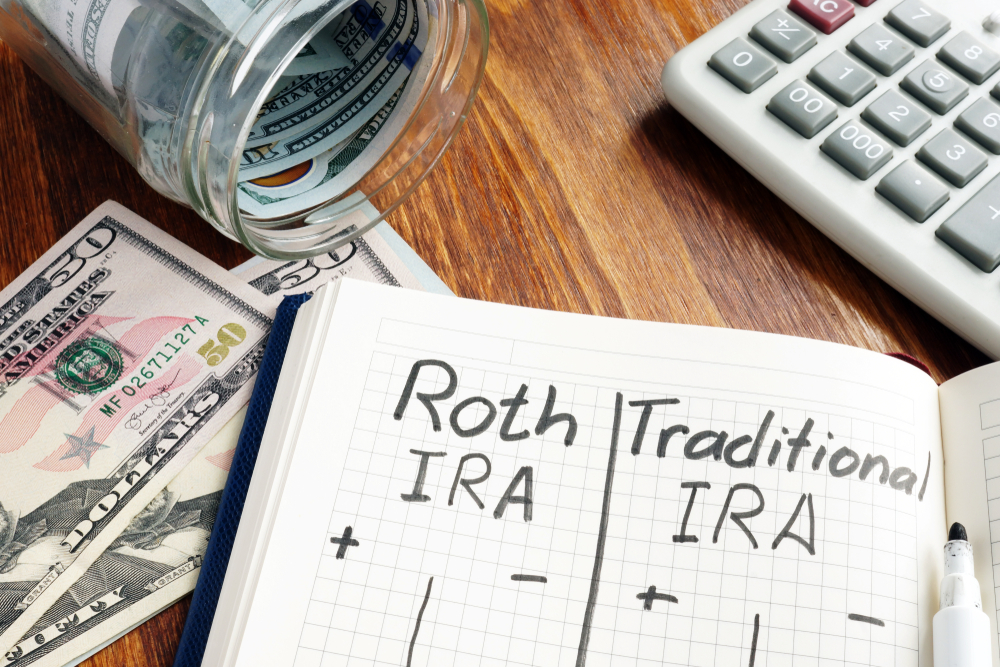
When-Does-Converting-A-Traditional-IRA-To-A-Roth-IRA-Make-Sense
Some people only consider working with an experienced tax consultant during tax season. Yet, your tax burden doesn’t come into play only once a year. By making the right investments, you can reduce your tax burden.
One way that individuals are looking to reduce their tax burden is by switching their traditional IRA to a Roth IRA. For some, dealing with their retirement accounts is intimidating, and so they are reluctant to make any significant changes. But if you can save yourself future taxes, it may be worth it to work with a qualified Cedar City accountant to determine if it makes sense to convert your traditional IRA into a Roth IRA.
Difference Between Traditional IRA And Roth IRA
Sometimes, the terms traditional IRA and Roth IRA are used interchangeably to refer to retirement plans as a whole. However, these are distinctly different retirement strategies. To ensure that you are clear on the differences between them, here are how both are defined:
- Traditional IRA – Income deposited in a traditional IRA is invested pre-tax. Your investments are allowed to grow without dividends income taxes or capital gains taxes being assessed until you withdraw from your IRA. Depending on your modified adjusted gross income, and potentially other factors, you may be able to deduct traditional IRA contributions from your taxes. However, there are other considerations to keep in mind with a traditional IRA. For instance, you will, in most instances, be required to pay income taxes when you withdraw money from your traditional IRA. Also, there is a penalty if you withdraw from your traditional IRA before 59 ½. There is also a penalty if you don’t make the minimum withdrawals from your traditional IRA after you are 72 years old.
- Roth IRA – Contributions to a Roth IRA are already taxed, so when you make a withdrawal, you can pull from your Roth IRA without paying any additional taxes. You do still need to be at least 59 ½ to avoid the early-withdrawal penalty. There is also no minimum withdrawal mandate with a Roth IRA. Also, as this money has already been taxed, you cannot deduct your Roth IRA contributions from your taxes. Now that these two retirement savings options have been defined let’s look at why someone would convert their traditional IRA into a Roth IRA.
Why Convert Traditional IRA To A Roth IRA
The main reason why someone might convert their traditional IRA into a Roth IRA is to minimize their tax burden. However, the timing of this conversion plays a large part in whether or not it is in your best interest to convert your traditional IRA to a Roth IRA.
For instance, a traditional IRA loses value if the stock market experiences a downturn. In many cases, it is not recommended to alter your retirement plans just because of stock market fluctuation—these ups and downs are expected over the lifetime of your traditional IRA. However, if you are looking for greater security and fewer fluctuations, a Roth IRA will offer that.
There are, of course, other considerations that need to be taken into account when considering converting a traditional IRA to a Roth IRA, which is best discussed with a seasoned accountant.
Review Your Retirement Plan Options With An Experienced Accountant
When consulting with our accountant, factors such as your time until retirement, tax bill associated with converting a traditional IRA to a Roth IRA, or having a mix of accounts will be considered. It is impossible to say in one blog post what would be best for your personal finances, as everyone has their own combination of financial concerns.
To review your retirement plan options, discuss tax burden reduction strategies, or other accounting business with our experienced accountant, please contact us today to arrange for a consultation.





